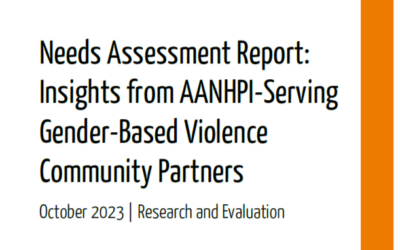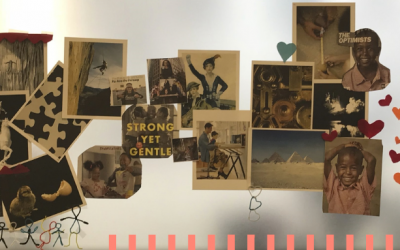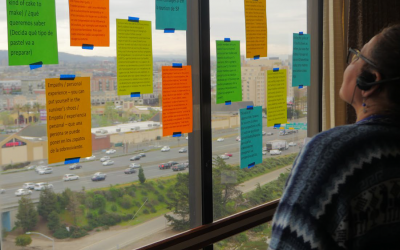Related Resources
2023 CBO Needs Assessment Report & Summary
This report explores and contextualizes the results from API-GBV's 2023 needs assessment on AANHPI-serving GBV community organizations. The findings support a sustained need for culturally responsive programming and research; specialized training opportunities for...
Faithful Allies: Working with Christian Leaders
This tipsheet 1-pager, developed by Korean American Family Services (KFAM) describes some suggested practices for working with faith leaders on DV/SV response and prevention.
Faithful Allies: Working with Christian Leaders
Almost 70-80% of Korean immigrants in the U.S. reports that they attend church regularly. Korean American Family Services (KFAM) has encountered so many survivors whose faith play a very important role for their journey to healing. Because of this reason, KFAM has been working with the Korean faith community for about 8 years in order to make our community more welcoming to survivors and to train faith leaders to become supportive first responders. Through this webinar, KFAM will share our work with faith leaders, our strategy and the impact of our work.
Trauma-Informed Care for AAPI Survivors: 3-Part Webinar Series
Presented in collaboration with four AAPI community organizations and shelters, this webinar series explores the impacts of trauma on AAPI survivors and communities. Presenters share insight about working with survivors in shelter and through immigration and legal cases; and discuss best practices for providing culturally-specific, trauma-informed services, particularly within the context of COVID-19.
Innovations in Survivor-Centered Advocacy, 2019
This report describes the next phase of the Survivor-Centered Advocacy Project, supporting four field research teams to translate their findings into practice aimed at transforming the field.
Survivor-Centered Advocacy in Culturally Specific Communities: A Community-Based Participatory Research Project, 2019
The Survivor-Centered Advocacy Project was a California-based research justice project that utilized a community-based participatory research (CBPR) approach. This report illustrates the basic principles of CBPR and makes recommendations for those wishing to do a CBPR project that holds historically marginalized communities at the center; and/or those attempting to align or deepen their practices according to what works for survivors from historically marginalized communities.
API-GBV
August 2018
These slides were originally presented at our 2018 National Summit. To see all materials from the Summit, click here.






